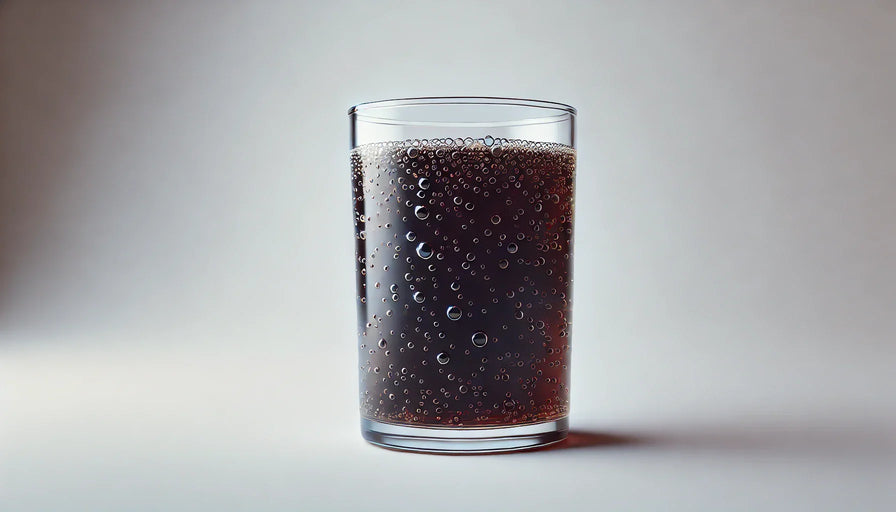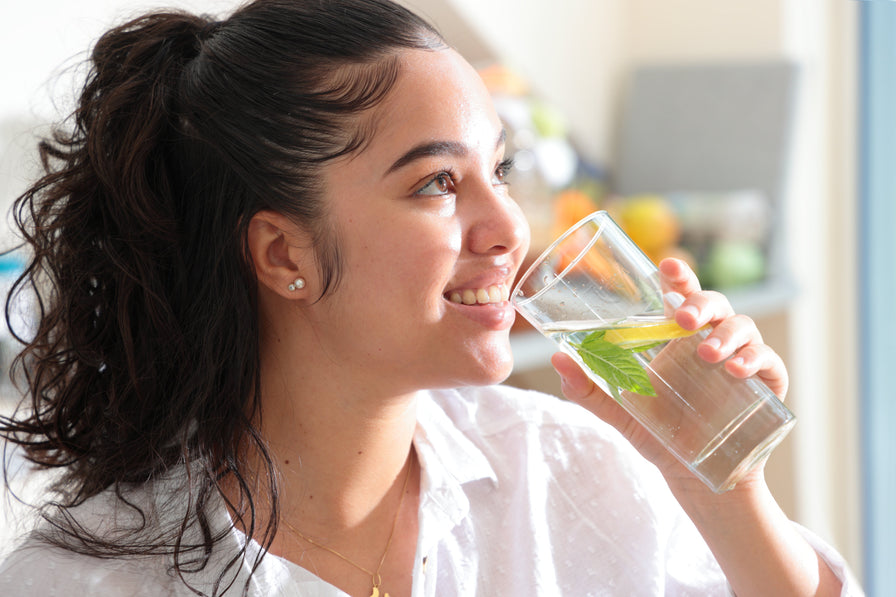
Is Sparkling Water Bad for IBS?

Is sparkling water bad for IBS?
Sparkling water is typically regarded as safe for those with Irritable Bowel Syndrome (IBS); however, its effects can differ among individuals. While some may experience bloating and discomfort due to carbonation, others may find it poses no problems whatsoever.
When it comes to managing Irritable Bowel Syndrome (IBS) and digestive concerns, dietary choices play a crucial role in maintaining comfort and well-being. One beverage that often raises questions among IBS sufferers is sparkling water.
With its refreshing fizz, alternative to sugary sodas, and various potential health benefits, sparkling water can be an attractive option for hydration.
However, understanding its potential impact on gastrointestinal symptoms is essential for making informed choices that align with individual tolerance levels.
Table of contents

What causes IBS?
Key takeaways
- IBS affects 10-15% of the global population, primarily young adults and women.
- It is associated with abnormal gut motility, heightened nerve sensitivity, and stress.
- Dietary triggers like specific carbohydrates, fatty foods, and certain carbonated beverages often worsen symptoms.
Irritable Bowel Syndrome (IBS) is a multifaceted disorder characterized by a variety of potential triggers and causes that can vary significantly from person to person. Although the precise cause remains elusive, several factors are believed to play a role in the development of IBS.
Recent estimates indicate that approximately 10-15% of the global population suffers from Irritable Bowel Syndrome (IBS), with varying degrees of severity. This condition affects people of all ages, but it is especially common in young adults and women.
Notably, abnormalities in gut motility may cause the intestinal muscles to contract too rapidly or too slowly, resulting in symptoms such as diarrhea or constipation.
Additionally, overly sensitive nerves in the gut can amplify the sensation of discomfort. Stress and psychological factors, such as anxiety and depression, are also linked to IBS, as they can exacerbate symptoms.
Dietary triggers—like certain types of carbohydrates, fatty foods, and carbonated beverages—can play a significant role in symptom flare-ups for many individuals.
Related read: Is Carbonation Bad for Your Bones?

Is carbonated water acidic?
Carbonated water exhibits a slight acidity due to the presence of carbonic acid, which forms when carbon dioxide dissolves in water. This results in a pH level typically ranging from 3 to 4, making it more acidic than plain water, which has a neutral pH of around 7.
However, the acidity of carbonated water is relatively mild and generally considered safe when consumed in moderation, especially in regards to tooth enamel health.
For individuals with IBS, while the acidity itself may not directly cause issues, the carbonation can lead to increased symptoms like bloating in some cases. Therefore, it is essential for those with IBS to monitor their reactions to carbonated beverages closely.
Many also believe that you can be allergic to carbonation due to potential side effects; however, being truly allergic to carbonation is extremely rare.
Some individuals, those who have IBS, for example, may experience discomfort from consuming carbonation; however, this does not validate an allergic reaction to carbon dioxide, as their symptoms may be due to the other ingredients found in sodas and seltzers, such as sulfites.
Related read: Is Soda Water Bad for You?

Connection between caffeine and IBS
Caffeine is known to have stimulating effects on the gastrointestinal tract, which can be a concern for individuals with IBS.
For many, consuming caffeinated beverages, including soda, can trigger symptoms such as cramping, diarrhea, and urgency. The carbonation found in soda can further exacerbate these effects, leading to increased bloating and discomfort.
It’s essential for those with IBS to be mindful of their caffeine intake and to observe how both caffeinated and carbonated drinks impact their symptoms. Some individuals may benefit from reducing or eliminating these beverages to better manage their condition.
Related read: Is Sparkling Water Good for Weight Loss?

What not to drink with IBS
When managing Irritable Bowel Syndrome (IBS), it's crucial to be mindful of your beverage choices. Certain drinks can exacerbate symptoms and lead to discomfort.
Here are some beverages to avoid:
- Caffeinated drinks
- Alcohol
- Certain carbonated beverages
- High-fructose syrups
- Dairy products
- Artificial sweeteners
Monitoring individual reactions to these drinks can help individuals with IBS better manage their symptoms.
Related read: Does Carbonation Harden Your Ovaries?

Summary
In summary, while sparkling water is generally safe for individuals with Irritable Bowel Syndrome (IBS), its effects can vary. Carbonation may cause bloating or discomfort in some, while others may tolerate it without issue.
Factors such as gut motility, sensitivity in the gastrointestinal tract, and dietary triggers significantly contribute to IBS symptoms. Additionally, beverages high in caffeine, alcohol, and certain carbonated drinks should be approached with caution, as they can exacerbate symptoms.
It's important for those with IBS to monitor their responses to different drinks to effectively manage their condition.
Recommended reading

How to Give Back During Thanksgiving 2025
Key takeaways Thanksgiving is a time to express gratitude and share with those in need. From volunteering at local shelters to donating food and essentials, there are numerous ways to give back to...

What Does Carbonation Do to Your Body?
What does carbonation do to your body? Carbonation alone typically has minimal effects; however, it can cause bloating and discomfort for some, and it may worsen acid reflux due to carbon dioxide ...

What Are the Health Benefits of Sparkling Water?
Summary Sparkling water isn't just a refreshing drink—it comes with surprising health benefits too. From aiding digestion to improving hydration, discover how sparkling water can be a healthy addi...